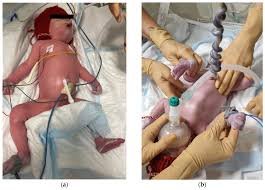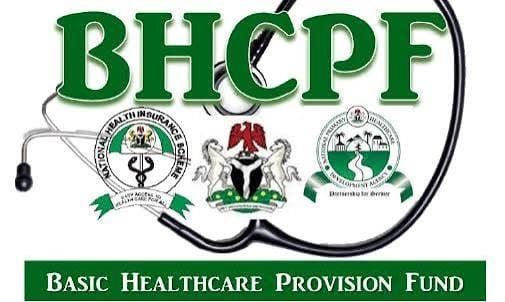
ABUJA, Nigeria – In the heart of Abuja’s diplomatic district, a young woman’s dream of studying abroad ended abruptly during her medical visa. A routine test revealed something she never expected — she had tested positive for syphilis.
Her story mirrors that of many Nigerians who only discover the infection during mandatory medical screenings for countries like the U.S. or Canada. Often overshadowed by HIV, syphilis continues to quietly destroy lives, causing infertility, stillbirths, and long-term complications — despite being completely preventable and curable.
Nigeria’s antenatal screening coverage sits at just 20–30%, and syphilis affects up to 3% of high-risk groups. Health experts warn the country risks a silent epidemic unless it urgently prioritises prevention and testing. Juliet Jacob, writes.
The Great Imitator: How Syphilis Hides in Plain Sight
Caused by the bacterium Treponema pallidum, syphilis is dubbed “the great imitator” for its ability to mimic other diseases. It spreads through sexual contact, from mother to child during pregnancy, or—rarely—through unscreened blood transfusions.
If untreated, the infection progresses from painless sores to rashes, then lies dormant for years before resurfacing to damage the brain, heart, and eyes. Globally, Africa bears the highest burden, and Nigeria’s true prevalence remains largely undercounted.
Syphilis triples the risk of HIV, causes infertility in up to 40% of women through fallopian tube scarring, and is responsible for 25% of stillbirths in infected pregnancies. The cure? A simple penicillin injection costing under ₦5,000 — yet many never get it.
“It’s Common but Hidden” — Doctors Sound the Alarm
A reproductive health consultant in Lagos, Dr. Fatima Bello, told Africa Health Report:
“Syphilis often surfaces during fertility checks after years of silent damage, causing 30% of infertility via tubal blockages. Screening should begin from age 15. It deserves a dedicated national campaign — just like PEPFAR did for HIV.”
In Enugu, Professor Ngozi Eze added: “In HIV-positive patients, syphilis prevalence hits 2.1% and accelerates AIDS progression. Prevention through condom use and dual testing is key. The 25% congenital death rate is a national emergency.”
The Fertility Fallout — A Costly Tragedy
At the Lifelink Fertility Clinic in Lagos, Dr. Kemi Ailoje, a reproductive endocrinologist, sees the devastating effects daily.
“Syphilis accounts for about 10–15% of infertility cases linked to tubal damage,” she said. “This problem is especially common in urban centres like Lagos, Abuja, and Port Harcourt, where delayed diagnosis and limited screening worsen the damage.”
In rural areas, she said, “even basic diagnostic testing is a luxury. Many health facilities lack laboratories. Women resort to self-medication or herbal treatments until the damage becomes irreversible.”
Dr. Ailoje estimates that up to 40% of women with untreated syphilis become infertile.
“By the time women seek help for recurrent miscarriages or chronic pelvic pain, the damage is often irreversible,” she said.
At her clinic, every fertility consultation includes full STI screening — yet she warns that low antenatal testing rates (just 16–30%) mean thousands of pregnant women remain untested, leading to preventable stillbirths and neonatal deaths.
“IVF can bypass blocked tubes with a 40–50% success rate,” she added, “but prevention through early testing is far cheaper and more effective.”
Data Gaps and Policy Blind Spots
The Nigeria Centre for Disease Control (NCDC) reports an overall STI decline from 0.31% in 2021 to 0.16% in 2023, but syphilis data remains fragmented and outdated.
2.1% prevalence in HIV-positive patients (Enugu)
3.3% in North Central Nigeria
1.8% in Lagos HIV clinics (4.8% in men)
Unlike HIV’s well-funded campaigns, syphilis receives minimal attention — and experts believe actual figures could be 5–10 times higher. WHO estimates that with 7 million annual births, Nigeria sees thousands of congenital syphilis cases yearly.
The Human Cost — Beyond Medicine
Beyond physical harm, syphilis carries deep emotional scars.
“Many women discover their status during visa or fertility screenings — it’s devastating,” Dr. Ailoje shared. “We provide counselling and therapy to help them rebuild confidence.”
She calls for empathy-led awareness:
“Breaking the silence around syphilis requires compassion. National campaigns led by Nollywood actors, faith-based leaders, and women’s groups can shift the narrative from stigma to solutions.”
Counting the Cost: How Syphilis Silently Drains Nigeria’s Economy
According to the WHO–ILO Joint Report on STIs and Productivity (2022), sexually transmitted infections (STIs) account for an estimated 2% GDP loss in low-resource economies. For Nigeria—with a GDP of roughly ₦200 trillion—this represents an annual loss of about ₦4–₵5 trillion, with syphilis alone responsible for an estimated ₦80–₦100 billion in direct and indirect losses.
Data from the Nigeria Demographic and Health Survey (NDHS, 2018) shows that infertility affects 5–9% of Nigerian women, while the Clinton Health Access Initiative (CHAI, 2022) reports that fewer than 20% of pregnant women are screened for syphilis, compared to over 90% for HIV. This screening gap allows thousands of preventable cases to persist undetected.
The World Health Organization (WHO, 2015) estimates about 36,000 congenital syphilis cases annually, costing ₦7–₦14 billion in neonatal care, based on data from Federal Medical Centre (FMC) Abuja (2023), where neonatal treatment costs range between ₦200,000 and ₦400,000 per infant.
For women facing infertility, the financial toll is staggering. With an estimated 100,000 women suffering syphilis-related infertility each year, and IVF cycles costing between ₦2.1 million and ₦5 million, couples could collectively spend ₦210–₦500 billion annually. Diagnostic tests such as hysterosalpingography (HSG) add to the burden, costing ₦40,000–₦80,000 per procedure, according to Lagos University Teaching Hospital (LUTH, 2023).
The hidden costs stretch far beyond hospital walls. The WHO Stillbirth Report (2023) estimates 150,000 stillbirths annually in Nigeria, with 20–25% linked to syphilis—roughly 30,000–37,500 cases. Each stillbirth represents a ₦120 million lifetime productivity loss, based on NBS Labour Statistics (2023) estimating ₦5–₦6 million annual income over a 40-year working lifespan.
Combined, these figures paint a stark picture: a curable infection costing less than ₦5,000 to treat silently drains hundreds of billions of naira every year, devastates families, and undermines Nigeria’s reproductive and economic stability.
A Call for Action — Testing, Not Guessing
Experts agree integrating syphilis screening into HIV programmes and antenatal care could save lives and money. With dual HIV-syphilis rapid tests now available, Nigeria has the tools — what’s missing is urgency.
Dr. Ailoje concluded: “While HIV testing exceeds 90% coverage, syphilis remains below 20%. Dual testing should be mandatory under the National Health Act.”
Until then, the infection will keep stealing futures — quietly, invisibly, and needlessly.




